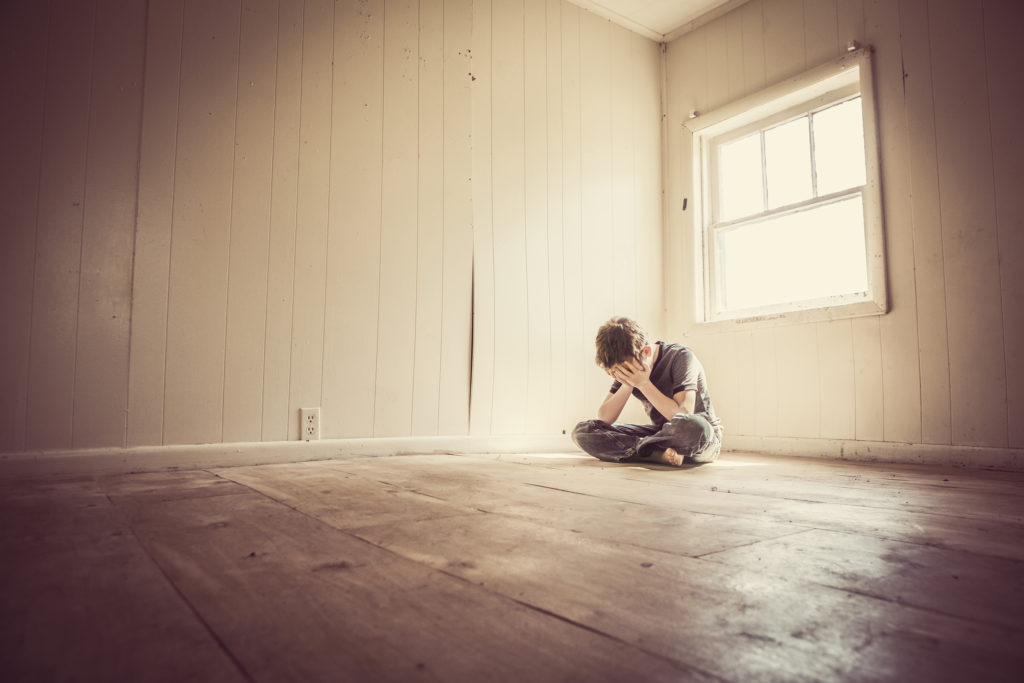“The worst loneliness is not to be comfortable with yourself”. —Mark Twain

It’s often said that the modern world is very well connected but a lonely place. We have all these different tools for connecting us more than ever before, but it often feels like we are also further apart and alone than we ever have been before.
Fair warned before I start, I’m going to talk about a programme on BBC Radio 4, so put your impressions of that to one side for a moment (as I get stick all the time for listening to Radio 4 as a 30 something) we have something that you will find really interesting.
A survey of more than 55,000 people run by BBC Radio 4’s All in the Mind programme in collaboration with the Wellcome Trust has now given us some fascinating insights into loneliness.
“16- to 24-year-olds experience loneliness more often and more intensely than other age groups”
The “Loneliness Experiment” as it’s known, led by Developmental Psychologist Professor Pamela Qualter, was the largest survey of its kind and of the many things it revealed one of the most interesting was that 16- to 24-year-olds experience loneliness more often and more intensely than other age groups.
The survey revealed that 40% of 16- to 24-year-olds reported feeling lonely often or very often while 29% of those aged 65 to 74 and 27% of people aged over 75 reported the same.
In an interview given to the British Psychological Society Professor Qualter outlined why she thought young people suffered from loneliness more than others;
“It doesn’t surprise me though that young people are lonely – they’re at a point in life where they’re trying to work out who they are and what their place is, and that’s hard. It’s a time when you’re very vulnerable to loneliness. One of the things I thought was interesting was our younger sample weren’t just higher on the frequency of loneliness, but also much higher on the intensity of loneliness. That, for me, hints at the fact that maybe this is part of a normal transition. Younger people are working out who they are in the world and are also only possibly experiencing this thing called loneliness for the first or second time. They don’t know that this doesn’t last forever and they’re also trying to develop the different skills to overcome it.”
Hopefully, some more studies will come off the back of this, especially around the reasons why in the older generations they reported feeling less lonely. Most of us would perceive the elderly to be lonelier but it would appear not. Is that because they have learnt how to combat it or have simply learnt to live with it, therefore it’s not as intense as it is for the young and new to the sensation?
One of the things that the survey also revealed was that LGBT people also often feel lonelier than others, but only where they feel discriminated against. If, as Professor Qualter suggests, the feeling of loneliness is linked to self-identity and belonging then this makes complete sense. If we feel that we should belong somewhere, but don’t for whatever reason, we can often feel isolated and alone.

As discrimination is very much alive and well both outside and inside the LGBT community this doesn’t surprise me. One of the other results of the survey showed that people had different ways to combat loneliness, one way is to go out and meet new people (even if it’s just an interaction with the local shop assistant).
This is also the reason why the charity initiative ‘All Together UK’, which won an Attitude Pride Award earlier this year, is vital in trying to combat that sense of loneliness in the LGBT community. It’s not been around that long as is a simple concept. Events, all around the UK, where people can come and meet people they wouldn’t normally have been exposed to, in a relaxed and supportive setting. Whether it’s this, OutdoorLads, your local LGBT charity events or even your local pub quiz night, if it’s a safe space then do consider going along either on your own and make friends or take a friend and see if you can get to know some more.
While we will never be able to eradicate loneliness, and even the survey says that many people appreciated some ‘alone’ time, initiatives like this and many more are vital for ensuring that everyone feels included and that they are not alone.
I do recommend listening to the podcast where they reveal the results and explore some of the themes. Loneliness affects us all at some stage and learning a bit more about what it means to be lonely and some of the different ways of coping with it might help you either now or later in life.
Opinions expressed in this article may not reflect those of THEGAYUK, its management or editorial teams. If you'd like to comment or write a comment, opinion or blog piece, please click here.



